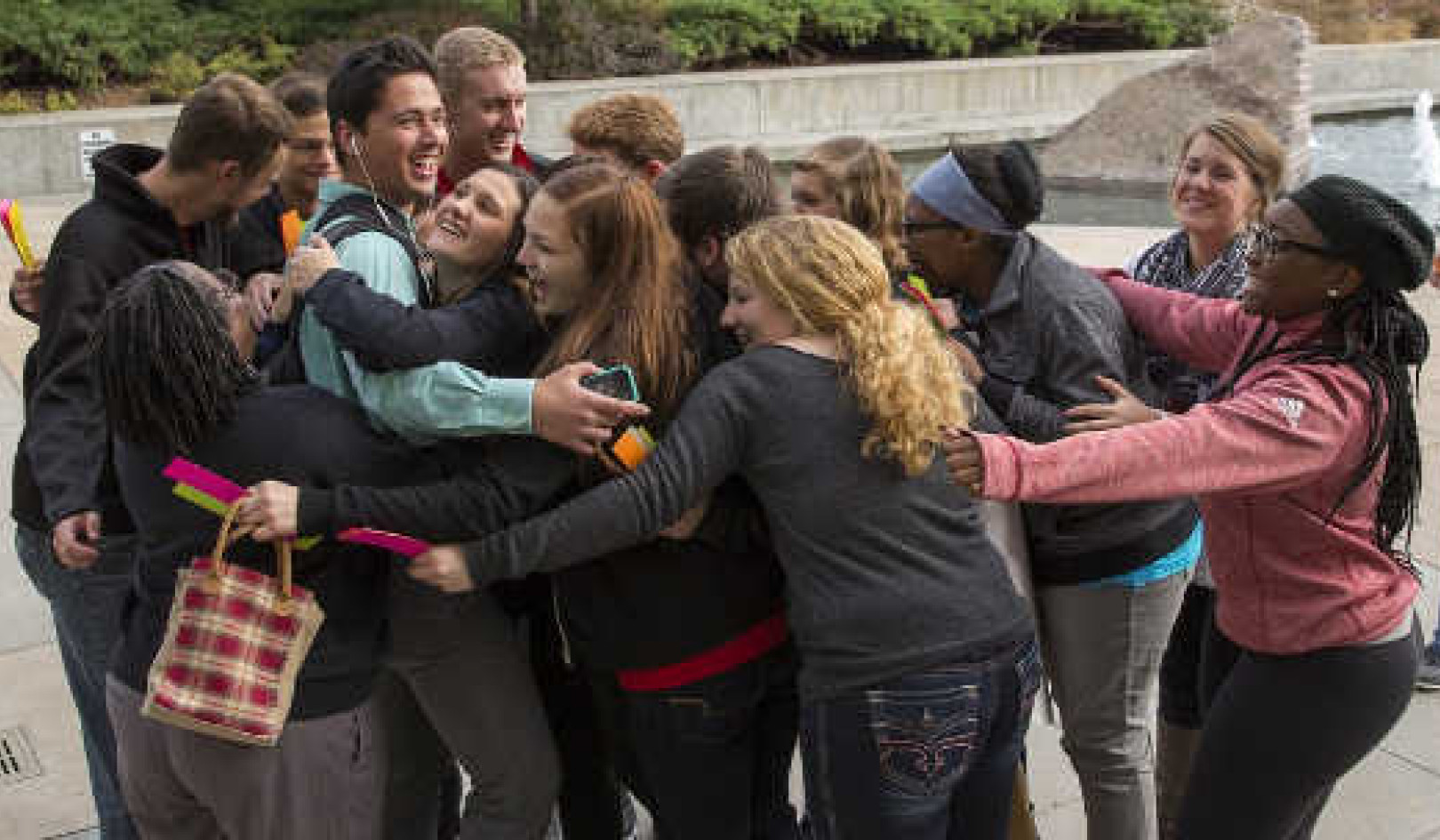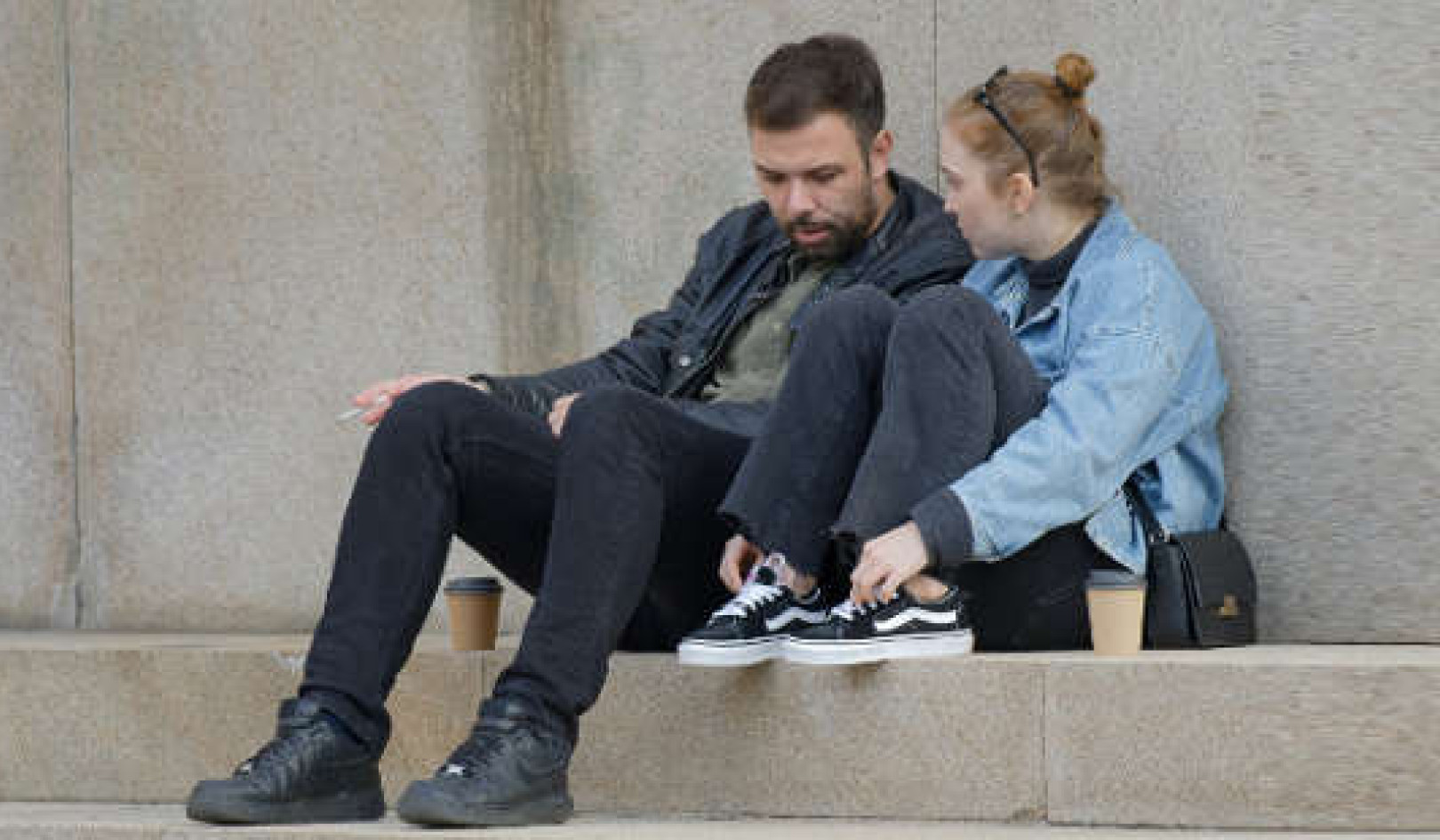
When we quiet the mind, our transgressions emerge from the shadows and we become sensitive to our interaction with others. A turning point presents itself. Though we feel regret at having caused harm, there may still be a niggling voice whispering that our actions were necessary. Tit for tat; he deserved that; we were not acting, only reacting. It's important to remember that we alone are in control of our actions. When the words and actions of other people dictate our choices, we are not free. This is our opportunity to make a major change in our lives and unyoke ourselves from the ingrained habit of being reactive.
We acknowledge our responsibility for our own thoughts and actions and feel regret for causing suffering. The remorse is deep and genuine, because we realize that when we harm others, we harm ourselves. We are all connected--interbeing.
Apologizing to the People I Have Hurt
When I felt this overwhelming remorse, I decided to apologize to the people I may have hurt with my angry words or gestures. Because I had probably harmed hundreds over my lifetime, it was impossible to remember them all, much less ask for forgiveness. But it is willingness that's important, so I decided to start with the people I did remember.
This is where courage came in. It's fairly easy to say "I'm sorry" a few minutes or days after an argument, but much more difficult after months or years. That required humility. Looking into my heart, I realized that my intention to apologize was paramount. I was seeking forgiveness not to make myself feel better, but to bear witness to the harm I may have done to others. Because I couldn't locate or even recall every person who deserved an apology, I remembered my Catholic childhood and for the first time in 25 years, I decided to go to confession.
Seeking Forgiveness
It was a momentous event. The day was suitably dreary and a heavy mist had settled on the grass surrounding the church. I had called ahead to make sure a priest would be present and had reviewed the sins I had committed and planned to make a general confession. To my surprise, there was no longer a private booth. I sat face-to-face with a priest and began with tears in my eyes,
"Forgive me father for I have sinned. It has been 25 years since my last confession."
The priest interrupted, "That's okay, God will forgive you. Just kneel at the altar and say you're sorry." He then gave absolution.
I was shocked -- not even a rosary for penance! It had taken years to realize that I had indeed caused harm and months to summon up the humility to ask for forgiveness. The priest was not prepared to listen. Perhaps it was boredom, or perhaps an act of kindness on his part, but the great release I had hoped for was denied.
Being Free of Guilt and Shame
Even though I was sorry for hurting people, there was still the underlying desire to free myself of the burden of guilt and shame. Some self-help programs suggest that we share our sins before God and another human being.
I remember an older woman who had a slogan ready for every situation. One was, "It's better to cry and share it, than grin and bear it." It does feel better to share grief and anger and guilt.
When I was doing research about forgiveness on the Internet, I found several confession sites. People could e-mail their sins to the site where the entire narrative would be posted for anyone to read. There is a need to unburden guilt, even to unknown strangers.
At first, I wondered why people would read the confessions. Some people probably enjoyed the vicarious thrill of sharing secrets, but others, I thought, wanted to feel a connection with others. We're all in the same boat and share the same faults and foibles.
True remorse comes from a sense
of oneness with all beings.
We wish to seek forgiveness not to make ourselves feel better, but to acknowledge that we have caused suffering for another.
We're not always able to make amends to everyone. We lose touch, we forget names, or people have died. But it is possible to acknowledge our remorse.
Practice: Expressing Remorse
 Decide to walk in a natural setting that you enjoy -- the woods, countryside, or shore. Guilt has been locked inside for so long that it is helpful to release it to the four directions. Find a place to sit and begin to watch your breath. Open to the sounds around you -- leaves murmuring in the wind, waves spanking the shore, insects humming by. Begin to picture each person you have hurt, and say silently:
Decide to walk in a natural setting that you enjoy -- the woods, countryside, or shore. Guilt has been locked inside for so long that it is helpful to release it to the four directions. Find a place to sit and begin to watch your breath. Open to the sounds around you -- leaves murmuring in the wind, waves spanking the shore, insects humming by. Begin to picture each person you have hurt, and say silently:
For all the harm I have done to you, knowingly or unknowingly, forgive me.
As I wish myself to be happy, so I wish you to be happy.
May your life be filled with joy and well being.
Keep repeating the words until you feel a loosening in your heart. Then move on to another person.
It can take many outings to ask forgiveness of the people we have caused to suffer. It may be easier to start with small transgressions. When you feel as if you have released some guilt, then make a symbolic gesture: releasing a balloon, tossing a stone into the ocean, blowing out a candle.
Words alone may not suffice.
Atonement
The usual definition of atonement is making amends. But before we can make amends, we need to fully comprehend what we have done, both how it feels for us to harm and how it feels for the other to be harmed. It is called at-one-ment. We become intimate with our thoughts and actions. Most of us like to skip over this part, because it's difficult. But
We cannot truly make amends until we experience
the pain we have caused ourselves and others.
Practice: At-one-ment
Sit quietly and begin to watch your breath. When you feel as if your mind has settled, then recall the incident that caused harm.
Inhale, exhale and ask yourself:
Why did I act that way?
Was the motivation fear, or anger, or jealousy, or lust, or greed?
When you think you have an answer, then try to access the emotion. Notice where in your body the emotion settles. It could be a knot in your stomach, a tightening in the shoulders, gritted teeth, constriction around your heart.
Inhale, exhale, and place all of your attention on the sensation.
- Notice if it's large or small, strong or weak, tingling or stabbing or throbbing.
- What color is the emotion? Focus on the color and see what happens.
- Does the color remain the same or does it change? Does it vibrate or remain static?
- Does it become more or less intense?
- Does it metamorphose into another color?
- Does it fade away?
When the sensation and color seem to dissipate, clear your mind and return to your breath.
Call to mind the image of the person you have harmed. Imagine how the person must have felt when you wounded them. Call up the emotion and notice where it appears in your body. Investigate the sensation and notice if it changes.
This is one way to become intimate with our transgressions. We become at one with our victim's feelings as well as our own. In this intimacy, this walking in another's shoes, we come to see that we all feel the same things. You may discover that the emotions that motivated you to harm are identical to the feelings of being harmed. This insight offers opportunity to change the way we act when we are angry, fearful, or greedy. That's true at-one-ment.
Making Amends
Making amends may not be as simple as apologizing, paying back stolen money, or correcting an exaggeration or lie.
When my graphic design business in Manhattan was in its infancy, I hired my first full-time employee. After interviewing several people, I settled on Andy who seemed to have a cheerful, upbeat personality. He would need it, because in previous jobs, I had a reputation for being a driven, difficult boss.
We worked together for several years and although I was a control freak, Andy began to wrest more and more responsibility from me until he was doing the billing and bookkeeping. He insisted that I buy expensive equipment that quickly helped turn a larger profit. His warm personality helped client relations, and the business began to flourish. Although I often mentioned to clients that Andy was in a large measure responsible for our success, I never thanked him.
Andy didn't have a sister and he invited me to fill that role. Because I was wrapped up in my own sense of isolation, I ignored his outstretched arms.
After I sold the business to Andy and moved to Long Island, he would call every few days to update me on new projects at work or the imminent move to larger offices. Each triumph reminded me that I was not indispensable and I greeted his news not with joy but with cynicism. Not coincidentally, I was drinking heavily at the time. Gradually the calls became further apart until they stopped altogether.
A couple of years later, his secretary called to tell me that Andy had died from pneumonia, a result of AIDS. He hadn't told me he was sick, and rightly so, because at that time I was too self-centered to be of any help.
I was filled with remorse and self-loathing. There was a snowstorm on the day of his funeral and the bus I rode into the city was very late. As I entered the funeral home, the mourners were leaving and the casket was being carried out. Again, I had failed Andy.
As time passed, the memory of the incident faded. I was newly sober, had started a garden design business, and had just begun Zen practice. But all of our failures are stored in the dark recesses of our minds, waiting to emerge.
In 1992 I entered training as a hospital chaplain at a cancer hospital in Manhattan. At first, I was not very good at it, being introverted and self-conscious. I formed relationships with patients who themselves were outgoing. One handsome Greek American was felled by leukemia in the prime of life. His business was successful, his daughter was engaged to be married, and he had recently attained his dream of owning a large sailboat. He was so full of joie de vivre and brimming with energy that he and his family were confident that he would beat the disease. A few months later, that changed. When I walked into his room, I almost didn't recognize the pale, wasted man who was in great pain. His charm was still there and the undercurrent of sadness made it all the more compelling. As I held his hand and we talked, he finally asked me, "Madeline, what made you do this work? Are you doing penance for something?" I was taken aback and said I wished to learn more about pain and suffering, but later, as I reflected on his question, I knew that he had seen what I had not yet glimpsed.
My favorite patients were usually men with AIDS (like Andy) or cancer patients (like my father). The vocation to my new ministry came from a deep longing in my heart for atonement. Subconsciously, I knew I had to make amends for abandoning Andy and sought a second chance to help my father better when he died. Chaplaincy was my solution.
From that moment on, my ministry blossomed because there was no longer any pressure to do things perfectly, to be all things to all people, or to make up for what had happened in the past. I was no longer trying to create the intimacy that I had rejected years ago. I no longer tried to make every AIDS patient into a surrogate Andy. I was free to do what needed to be done, without expecting patients to become attached to me. Just like a firefighter. When there's a fire, you put it out. You don't go back day after day expecting thanks for the job you did. You go on to the next fire.
You can make amends to people you have harmed, too. If there is someone to whom you wish to make amends, and they are not available because you have lost touch or they have died, there are still ways to atone. There is a phrase from the Old Testament, "An eye for an eye; a tooth for a tooth," which is about payback and revenge. But there's another way to look at it.
If you cannot make amends directly, a sincere
search will reveal the path to at-one-ment.
Practice: Making Amends
 Make a list of people to whom you would like to make amends. Write down their names, and how you harmed them. If any of the people are available, write down the appropriate action to express your regret. For example, if you have lied about a person, then correct it. If the person is not reachable, then think of an alternate way to atone for your words or actions. Here are some examples:
Make a list of people to whom you would like to make amends. Write down their names, and how you harmed them. If any of the people are available, write down the appropriate action to express your regret. For example, if you have lied about a person, then correct it. If the person is not reachable, then think of an alternate way to atone for your words or actions. Here are some examples:
- If you have stolen money or left a loan unpaid, then make restitution to the family. If you cannot find them, then donate money to charity.
- If you have spoken words of hate about an ethnic group, resolve to learn more about their heritage to understand them.
- If you have polluted the environment by tossing toxic items in the regular trash, then adopt a road and pick up litter.
- If you have lied about someone, resolve to tell the truth in the future.
Reprinted with permission of the publisher,
Red Wheel/Weiser, LLC. ©2003. www.RedWheelWeiser.com
This article is excerpted from:
Heart of Forgiveness: A Practical Path to Healing
by Madeline Ko-i Bastis.  Heart of Forgiveness helps readers reflect on what forgiveness really means and how it can heal their lives and relationships. Madeline Ko-i Bastis explores the difficult emotions that keep us from forgiving and offers tools to help us overcome them. Each section includes stories of forgiveness, a meditation, guided imagery, and other exercises to help understand forgiveness and letting go.
Heart of Forgiveness helps readers reflect on what forgiveness really means and how it can heal their lives and relationships. Madeline Ko-i Bastis explores the difficult emotions that keep us from forgiving and offers tools to help us overcome them. Each section includes stories of forgiveness, a meditation, guided imagery, and other exercises to help understand forgiveness and letting go.
Info/Order this book.
About the Author
 Madeline Ko-i Bastis was the first ordained Buddhist priest to be certified as a hospital chaplain. She has worked at Memorial Sloan-Kettering Cancer Center, NYU Medical Center and in the AIDS Unit at Nassau County Medical Center. She is the founder of Peaceful Dwelling, an organization devoted to teaching meditation techniques for healing located in Long Island, New York. Madeline is also the author of Peaceful Dwelling: Meditations for Healing and Living.
Madeline Ko-i Bastis was the first ordained Buddhist priest to be certified as a hospital chaplain. She has worked at Memorial Sloan-Kettering Cancer Center, NYU Medical Center and in the AIDS Unit at Nassau County Medical Center. She is the founder of Peaceful Dwelling, an organization devoted to teaching meditation techniques for healing located in Long Island, New York. Madeline is also the author of Peaceful Dwelling: Meditations for Healing and Living.






















